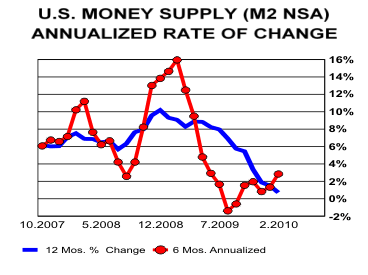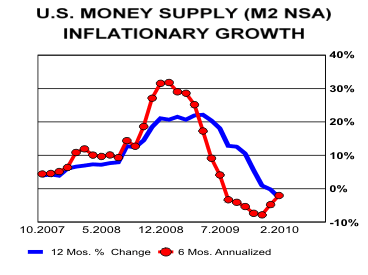Greeks Paying the Price for Worshiping the Keynesian False God
Commodities / Gold and Silver 2010 Mar 08, 2010 - 03:57 PM GMTBy: Ned_W_Schmidt
 The Greeks are learning the tough consequences of worshiping a false god. For years they sought the blessing of Keynesianism, only now to find it comes with a price. Keynes introduced the notion of government debt as salvation, the road to prosperity. Issue debt, and you will prosper. With those words, citizens of many nations turned their minds and ears off to reason. How could so many come to believe that borrowing money was the secret to prosperity?
The Greeks are learning the tough consequences of worshiping a false god. For years they sought the blessing of Keynesianism, only now to find it comes with a price. Keynes introduced the notion of government debt as salvation, the road to prosperity. Issue debt, and you will prosper. With those words, citizens of many nations turned their minds and ears off to reason. How could so many come to believe that borrowing money was the secret to prosperity?
Despite the decade when many nations of Latin America demonstrated clearly that debt as a road to prosperity was a delusion, the world seems forced to relearn that lesson. With Iceland, Ireland, Portugal, Spain, Italy, California, New Jersey, and Illinois now paying the price for their Keynesian debt binges, the U.S. continues down the merry road to the same financial armageddon. According to The Washington Post, the Congressional Budget Office now estimates the Obama Deficit will be more than $9.7 trillion over the next ten years, rather than $8.5 trillion. Does anyone remember when deficits were measured in billions?
One would think that after the bursting of the global mortgage bubble that debt would be a dirty word. Keynesian dogma does not allow for such heresy. The holy writings of the followers of Keynes ignore the ramifications of issuing one form of government debt, fiat money. For all our money today is someone’s, be it a government or a private entity, debt.

Since we last visited another line has been added to the above chart. Plotted in that graph are two different measures of the rate of growth for the U.S. money supply, M-2 NSA. The blue line is the one year percentage change of that money measure. The new line is the red one. It measures the six-month rate of change for the U.S. money supply at an annualized rate.
As we have talked before, the spike in those measures of money supply growth that occurred in late 2008 and early 2009 was a consequence of the massive liquidity injection by the Federal Reserve in response to the financial implosion of that period. That spike in the money supply growth rate was much feared by many as a harbinger of future inflation. We, as it happened, thought inflation would rise.
That inflation surge did not develop as so much damage had been done to the banking system that lending collapsed. Along with the collapse of bank lending came a collapse in the growth rate of the U.S. money supply. Be wary of reading much into the recent upturn in the six-month measure as seasonal forces often cause such a rise. Non seasonally adjusted data is used as the seasonal adjustment factors built with data of the last three years should be considered pure garbage.
Why did the surge in the growth rate of the U.S. money supply not lead to higher inflation? First, the surge was temporary, as can be observed in the graph. A second reason is that output, U.S. GDP, ceased collapsing. For example, if the money supply grows by 5% and output does not expand, prices should rise. If money supply growth is 5% and output increases by 6%, prices should decline. Money supply growth cannot be viewed in isolation, but also in the context of what is happening with output.

Our second graph, above, will help in understanding what was just described. In this graph we have taken the two previous measures of U.S. money supply growth and subtracted the rate of change of U.S. industrial production. The blue line is now the 12-month rate of change for the U.S. money supply minus the twelve-month rate of change for U.S. industrial production.
As is readily apparent, the surge now looks for more inflationary, and it was. However, the slowing of the U.S. money supply growth is now price depressing as industrial output has shown a recovery. That might be a dead cat bouncing, but it is what is happening at the present.
Notice now that the two adjusted money supply measures are both in negative territory. That means that U.S. output is rising at a faster rate than the U.S. money supply is expanding. Such a development is price depressing, or non inflationary. It also means that the U.S. dollar, on a relative basis, is becoming more valuable, rather than less valuable. Looking for inflation in the U.S. AT THE PRESENT TIME is a futile search.
This reality has implications for the value of the dollar on foreign exchange markets and the dollar value of Gold. The dollar has been appreciating as it should be. $Gold has been weak for now near three months, as it should have been. While the mindless trading of hedge fund managers can push the value of $Gold up in any week, such trading is swimming against the current. $Gold has been rightly weak, and should continue to be. U.S. dollar-based investors should probably defer buying until the next period of serious price weakness.
None of the above discussion should be construed as altering the longer term arguments for North American investors to own Gold. Deficit spending, nationalization of the health care system, confiscatory taxation, and business killing regulations by the Obama Regime will crush any possibility of economic growth. That reality will force the Federal Reserve into serious and overt monetization of the Obama Deficit. THAT will cause inflation to again be a problem.
The situation just described for U.S. investors is reversed for many others. English investors are experiencing rising Gold prices as the pound goes through its final liquidation as a global currency. Combination of a miserable economy being made worse by a dismal political situation is crushing investor interest in the pound. While they too should wait for price weakness to buy, they should buy with gusto when it happens.
The Euro price of Gold has reminded EU investors that the EU is still work in progress. The EU is not going to collapse over the financial mismanagement of individual states no more than the U.S. will crumble over the financial disasters in California, New Jersey, and Illinois. All are simply cases of Keynesian dogma coupled with inept politicians. This financial frailty is likely to reappear over the years, making the ownership of Gold a wise move. Being so close to an Iran armed with nuclear weapons might also be a good motive. However, the recent surge of Euro Gold probably should be simply watched rather than be reason to buy. EU investors should wait for price weakness to buy, and then do so with enthusiasm.
By Ned W Schmidt CFA, CEBS
Copyright © 2010 Ned W. Schmidt - All Rights Reserved
GOLD THOUGHTS come from Ned W. Schmidt,CFA,CEBS, publisher of The Value View Gold Report , monthly, and Trading Thoughts , weekly. To receive copies of recent reports, go to http://home.att.net/~nwschmidt/Order_Gold_GETVVGR.html
Ned W Schmidt Archive |
© 2005-2022 http://www.MarketOracle.co.uk - The Market Oracle is a FREE Daily Financial Markets Analysis & Forecasting online publication.



